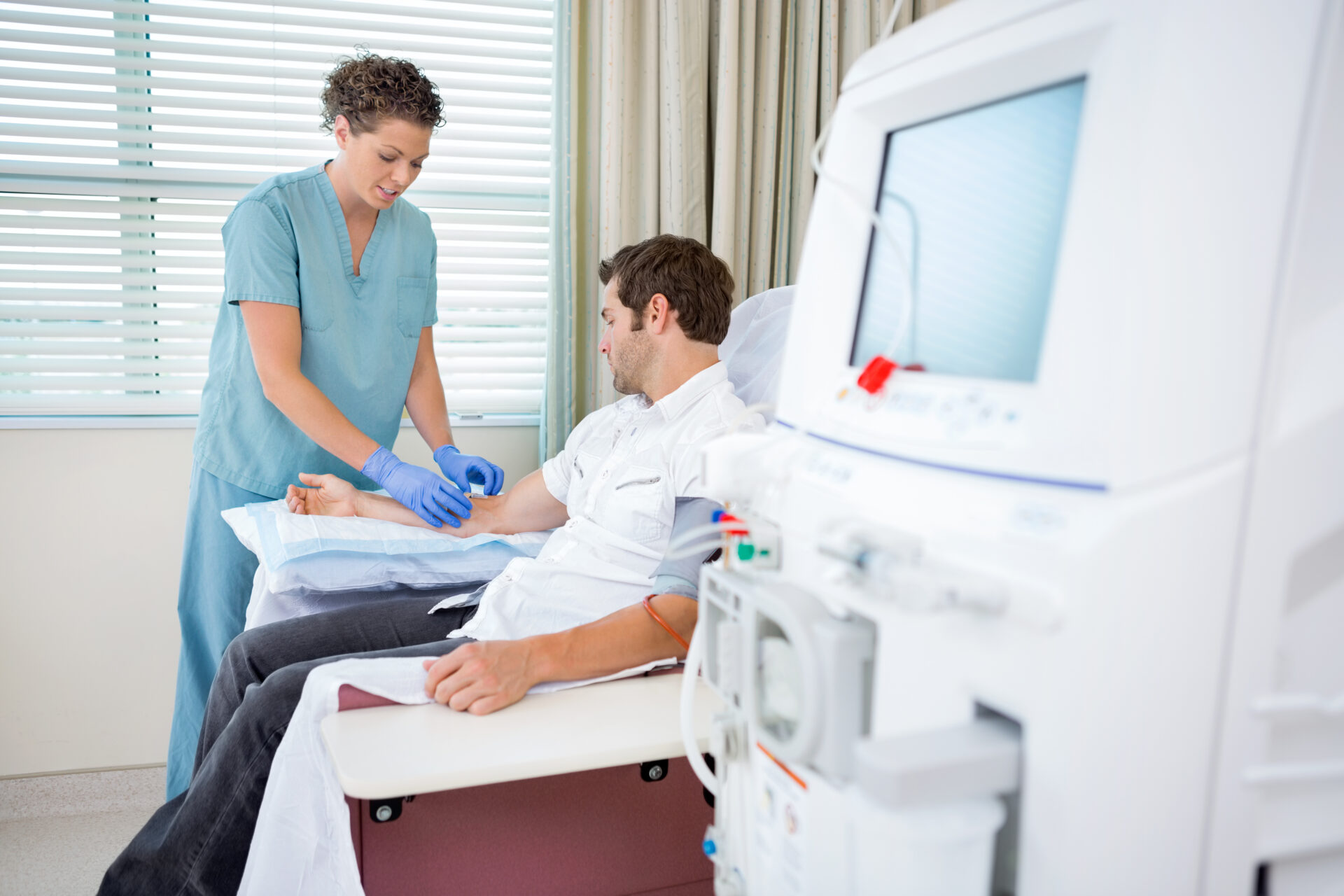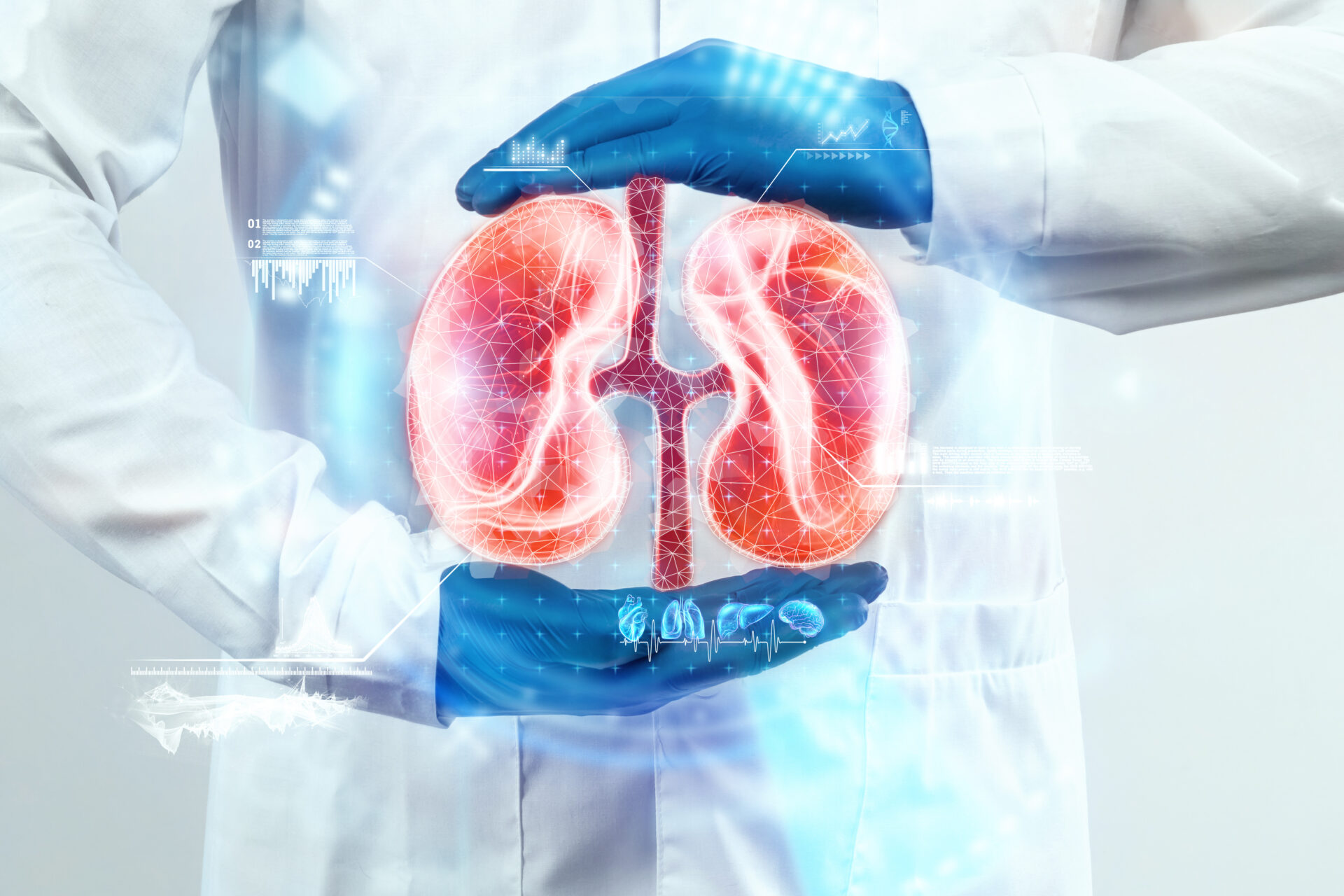Understanding Stage 3 Kidney Disease
Chronic kidney disease is a health condition affecting the kidneys, marked by a gradual decline in function. Stage 3 is a crucial phase in its progression.
While early stages may not show noticeable symptoms, Stage 3 kidney disease can present symptoms like fatigue, swelling, blood pressure changes, and impaired urine output.
At Innovative Renal Care, we share important information about CKD, specifically Stage 3.
Here, we’ll discuss chronic kidney disease stage 3 causes, symptoms, and available treatments. We aim to support individuals, families, and caregivers in managing this condition, helping you make informed decisions about your kidney health and improve your overall quality of life.


What Is Stage 3 Chronic Kidney Disease?
Stage 3 chronic kidney disease is a significant phase in the progression of kidney dysfunction.
In this stage, there is a moderate decrease in kidney function, with the glomerular filtration rate (GFR) ranging from 30 to 59 milliliters per minute. GFR measures how well the kidneys are filtering waste from the blood.
Critical aspects of Stage 3 CKD include:
- Moderate Kidney Damage
The kidneys are not functioning at their optimal level, but the extent of damage is moderate. - Gradual Decline
There is a gradual decline in kidney function over time. - Asymptomatic or Mild Symptoms
Individuals with Stage 3 CKD may not experience noticeable symptoms or mild symptoms that are often overlooked. - Increased Risk
There is an increased risk of complications and progression to more advanced stages of CKD.
Regular monitoring through blood tests, including serum creatinine and GFR measurements, helps healthcare professionals assess kidney function and determine appropriate interventions.

What Causes Stage 3 Kidney Disease?
Various factors can cause stage 3 chronic kidney disease.
Common causes include:
- Persistent high blood pressure can damage the small blood vessels in the kidneys over time, leading to kidney dysfunction.
- Uncontrolled diabetes, especially over an extended period, can damage the kidneys and contribute to the development of CKD.
- Inflammation of the kidney’s filtering units (glomeruli) can result in scarring and impair kidney function.
- Polycystic Kidney Disease (PKD) is a genetic condition where fluid-filled cysts form in the kidneys, leading to a gradual decline in function.
- Conditions that obstruct the urinary tract, such as kidney stones or an enlarged prostate.
- Certain autoimmune diseases, like lupus or vasculitis, can affect the kidneys.
- Frequent urinary tract infections or other infections affecting the kidneys can contribute to kidney damage.
- Prolonged use of certain medications, especially nonsteroidal anti-inflammatory drugs (NSAIDs) and some antibiotics, may contribute to kidney damage.
- The natural aging process can lead to a gradual decline in kidney function.
It’s important to note the exact cause of Stage 3 CKD may not be easily identifiable in some cases. Early detection and addressing underlying causes are crucial for managing and slowing the progression of this condition.

Stage 3 Kidney Disease Symptoms
Stage 3 chronic kidney disease may not always present noticeable symptoms, and individuals in this stage may remain asymptomatic.
However, as kidney function gradually declines, some common symptoms may include:
- Feeling consistently tired or lacking energy.
- Swelling in the hands, legs, ankles, or face due to fluid retention.
- Changes in urine output, color, or foamy urine.
- High blood pressure (hypertension).
- Pain or discomfort in the kidney area, often in the back.
- Loss of appetite or changes in eating patterns.
- Persistent itching, often unrelated to skin conditions.
- Difficulty sleeping or disruptions in sleep patterns.
- Painful muscle cramps, especially in the legs.
It’s important to note that symptoms can vary among individuals. Regular monitoring of kidney function through blood and urine tests is crucial for detecting and managing CKD.
If you suspect any kidney-related issues or experience persistent symptoms, it’s advisable to consult with a healthcare professional at Innovative Renal Care for proper evaluation and guidance.

Stage 3 Kidney Disease Treatment Options
The treatment approach for stage 3 chronic kidney disease focuses on managing underlying conditions, addressing symptoms, and slowing the progression of kidney damage.
Treatment options may include:
- Controlling blood pressure through medications, lifestyle changes, and dietary modifications.
- If diabetes contributes to CKD, maintaining optimal blood sugar levels is essential. Medications, insulin therapy, and lifestyle changes may be part of the diabetes management plan.
- A kidney-friendly diet, often low in salt, phosphorus, and potassium, may be recommended. Dietary adjustments can help manage symptoms and reduce the burden on the kidneys.
- Certain medications, such as nonsteroidal anti-inflammatory drugs (NSAIDs) and some antibiotics, can potentially harm the kidneys. A healthcare provider may review and adjust medications as needed.
- Controlling cholesterol levels, which can impact kidney function, is vital for cardiovascular health. Medications and lifestyle changes may be prescribed.
- Routine blood tests for kidney function, including serum creatinine and glomerular filtration rate (GFR), are essential for ongoing monitoring and help track the progression of CKD.
- Adopting a healthy lifestyle, including regular exercise, maintaining a healthy weight, and avoiding smoking, can positively impact kidney health.
- Addressing underlying conditions contributing to CKD, such as urinary tract obstructions or infections, is integral to the treatment plan.
Individuals with stage 3 CKD must work closely with their healthcare team to develop a personalized treatment plan. Regular follow-up appointments and adherence to the prescribed strategies are critical to effectively managing stage 3 CKD and improving overall kidney health.




